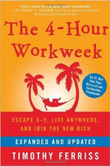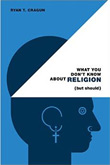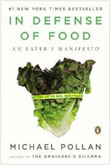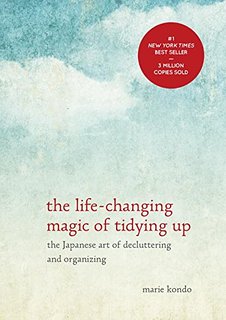Learning to Step Lightly
Brandon Sun, November 15, 2008 - David McConkey
On Friday, November 28, “Buy Nothing Day”
challenges us to stop
spending for one day. A new book by a Manitoba author invites us to
consider living more simply all the time.
Stepping
Lightly: Simplicity for People and the Planet is by Mark
Burch.
Burch currently lives in Winnipeg, but he lived in Brandon for a number
of years.
Stepping
Lightly is about the concept of “voluntary simplicity,”
which means
deliberately choosing to live with less. (Poverty, by contrast, is
involuntary.) Implied by many philosophers for thousands of years, it
has gained increasing currency in the last few decades.
The specific term “voluntary simplicity” was first used by U.S.
researchers in the 1970s who were documenting a trend of people wanting
to reduce the personal toll of the “rat race.” At the same time, more
people were exploring living in harmony with the natural environment,
then a relatively new idea.
Today, more and more are questioning the impact that our consumer
lifestyle has on ourselves, our community, and the environment. Burch
has done an excellent job in bringing together a diversity of ideas
describing the “why” and “how” of simpler ways of living.
“People take up simpler living for a variety of reasons,” Burch states.
“Stress is driving them to migraines or manias; there is no time in
their lives for spouse or children; there is no energy for pleasure
after meeting the demands of work; there is no opportunity to make a
contribution to the community; personal health is being threatened by a
lifestyle of perpetual motion; financial stress and oppressive debts
haunt every moment.”
Simplicity, however, is not a single answer or destination, but a
continuing process of discovery. Simplicity, Burch says, “involves
directing progressively more time and energy toward pursuing
non-material aspirations while providing for material needs as simply,
directly, and efficiently as possible.”
Burch asserts that much of our consumer culture is based on impulse
buying. A simple life is one where our choices are more purposeful – we
decide what is really important to us and live our lives accordingly.
As Burch points out, many of the things we especially value
(relationships, learning, artistic pursuits, and more) are often
surprisingly inexpensive.
Simpler living is appealing not only to anyone who is tired of the
all-too-present clutter in their lives, but also to a variety of other
people. They include folks who are dislocated by economic crisis,
concerned about environmental issues, leaving a mundane job to turn
their passion into their livelihood, and retiring baby boomers and
others who want to downsize.
Voluntary simplicity makes sense not only on a personal
level, but also on a global one. The planet cannot absorb unlimited
growth in consumption. Simply put, “stepping lightly” reduces our
ecological footprint.
Living with less stuff is also perfectly in tune with “sustainable
development,” which was first articulated in the 1980s and is now
widely accepted.
“Sustainable development,” states the federal government, which
endorses the concept, “integrates environmental, economic, and social
considerations in ways that allow today’s needs to be met without
compromising the ability of future generations to meet their own
needs.”
For inspiration and reflection, Mark Burch draws on 30 years experience
as a psychotherapist as well as his obviously keen interest in
spirituality. He delves deeply into the psychological and spiritual
(Eastern, Western, and secular humanist) dimensions of a life that is
less cluttered but more personally enriched. He also draws on a host of
research studies, workshop discussions, and Internet forums.
Burch also effectively explores the more practical aspects of simple
living and additional resources relating to personal, social, and
environmental concerns. Among the selection of other intriguing books
that Burch mentions are: Simple
Abundance: a Daybook of Comfort and Joy, The Consumer’s Guide to
Effective Environmental Choices, How to Live Without a Salary,
and Do What you
Love, The Money will Follow.
Burch has become an expert in a growing field of developing simpler
lives and sustainable societies. He works with the Simplicity
Practice and Resource Centre in Winnipeg, which conducts
workshops on simplicity and is the publisher of Stepping Lightly.
Among other publications by Burch is De-Junking: A Tool for Clutter
Busting. He also teaches a course on voluntary simplicity
at the University of Winnipeg.
As we are confronted by a tumbling stock market and the frantic
Christmas shopping season, a simpler life can look more appealing. Now
might be just the right time to open up to the idea.
See also:
Simple
Living on Amazon.ca
(on Amazon.com)
Popular Right Now:
- 15 Tips for Healthy Eating
- Quality of Life, Well-Being Research Something We Can Feel Good About
- Diets Don't Work, So What Does?
- Political Contributions: Top Ten Canadian Tax Tips
- Nestle Fitness 14 Day Weight Loss Program; What is Wrong Here?
- Charitable Donations: Top Ten Canadian Tax Tips
Must Read Books:
The 4-Hour Workweek:
Escape 9-5, Live Anywhere, and Join the New Rich

What You Don't Know About Religion (But Should)

In Defense of Food:
An Eater's Manifesto

The Life-Changing Magic of Tidying Up:
The Japanese Art of Decluttering and Organizing

Don't
Even Think About It:
Why Our Brains are Wired to Ignore Climate Change

Like This? Share It!
Press Ctrl + D to Bookmark!
